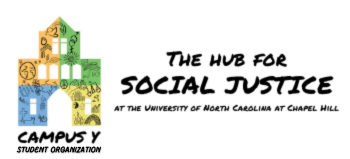Social justice while social distancing is an ongoing social media series that allows Campus Y committees to share how COVID-19 is impacting the issues they care about and how the Campus Y community can continue to advocate and stay engaged from afar.
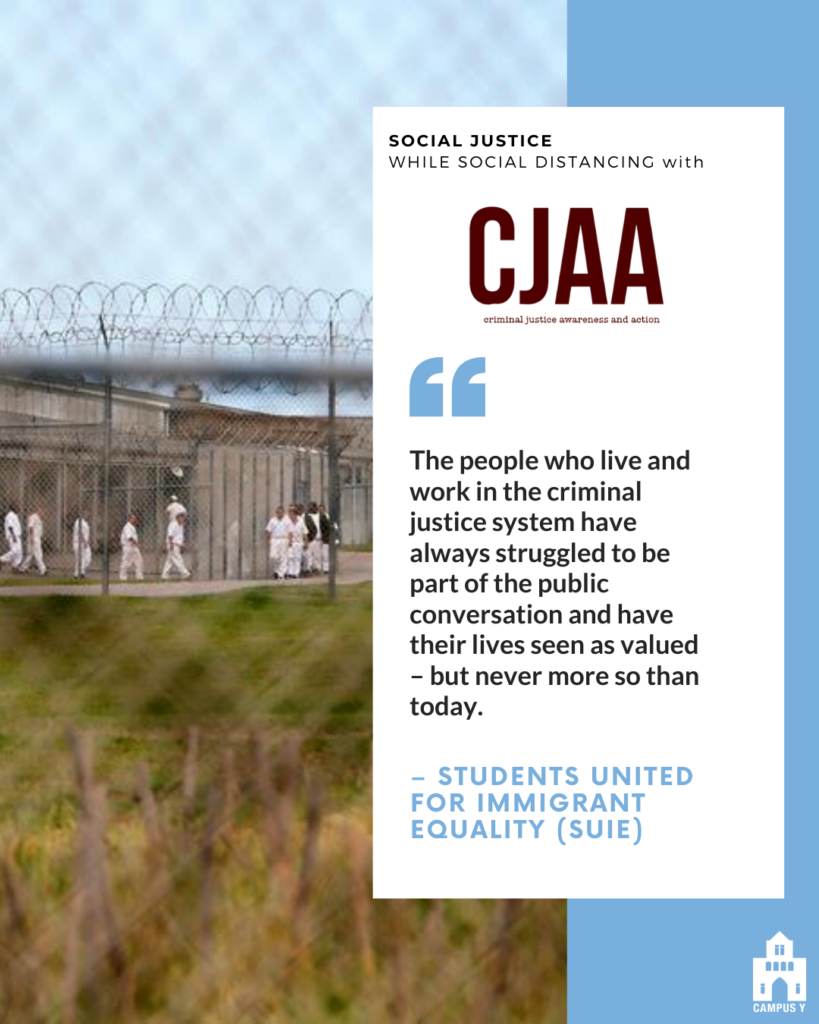
CRIMINAL JUSTICE AWARENESS AND ACTION (CJAA)
“Hand sanitizer may be hard to find at your local drugstore right now, but imagine if it were contraband. Prison visitation rights are being canceled, oversight authorities are being barred, and lawyers are having a harder time contacting their clients. It’s critical to keep our eyes and ears on criminal justice right now. The people who live and work in the system have always struggled to be part of the public conversation, and for their lives to be seen as valued – but never more so than today.
There are action steps that can be taken:
- Donate to the Prison Covid-19 Hotline at bit.ly/covid19prison.
- Call representatives and demand the immediate release of prisoners who are not determined at risk to public safety.
- Listen to the voices of incarcerated during this time. A great way is through the Ear Hustle podcast! The latest episodes follows COVID and its impacts on prisons.”
More information:
- Ear Hustle Episode 38: Locked Down Again
- Ear Hustle Episode 39: Us and Them
- Coronavirus and Prisons: A Toxic Combination
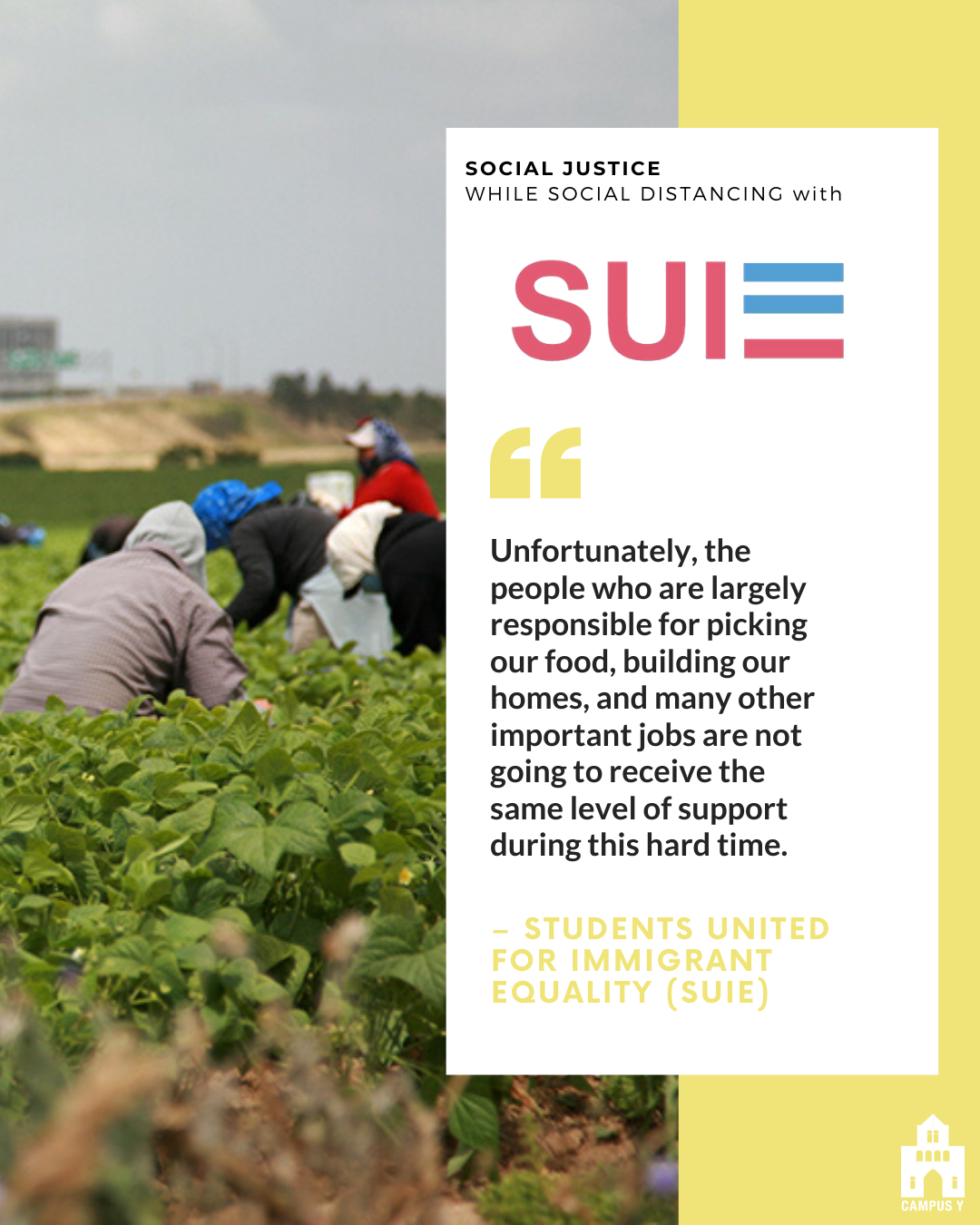
STUDENTS UNITED FOR IMMIGRANT EQUALITY
“The immigrant population is suffering in different ways than most due to COVID-19. Many of them are unable to stop working to self-quarantine, and if they are required to stay home many have no financial backup to support themselves. The Trump administration has talked about an economic stimulus, but undocumented workers will not benefit from these checks. Undocumented immigrants also feel uncomfortable going to medical professionals or even taking their children to hospitals due to their status.
Unfortunately, the people who are largely responsible for picking our food, building our homes, and many other important jobs are not going to receive the same level of support during this hard time.”
More information:
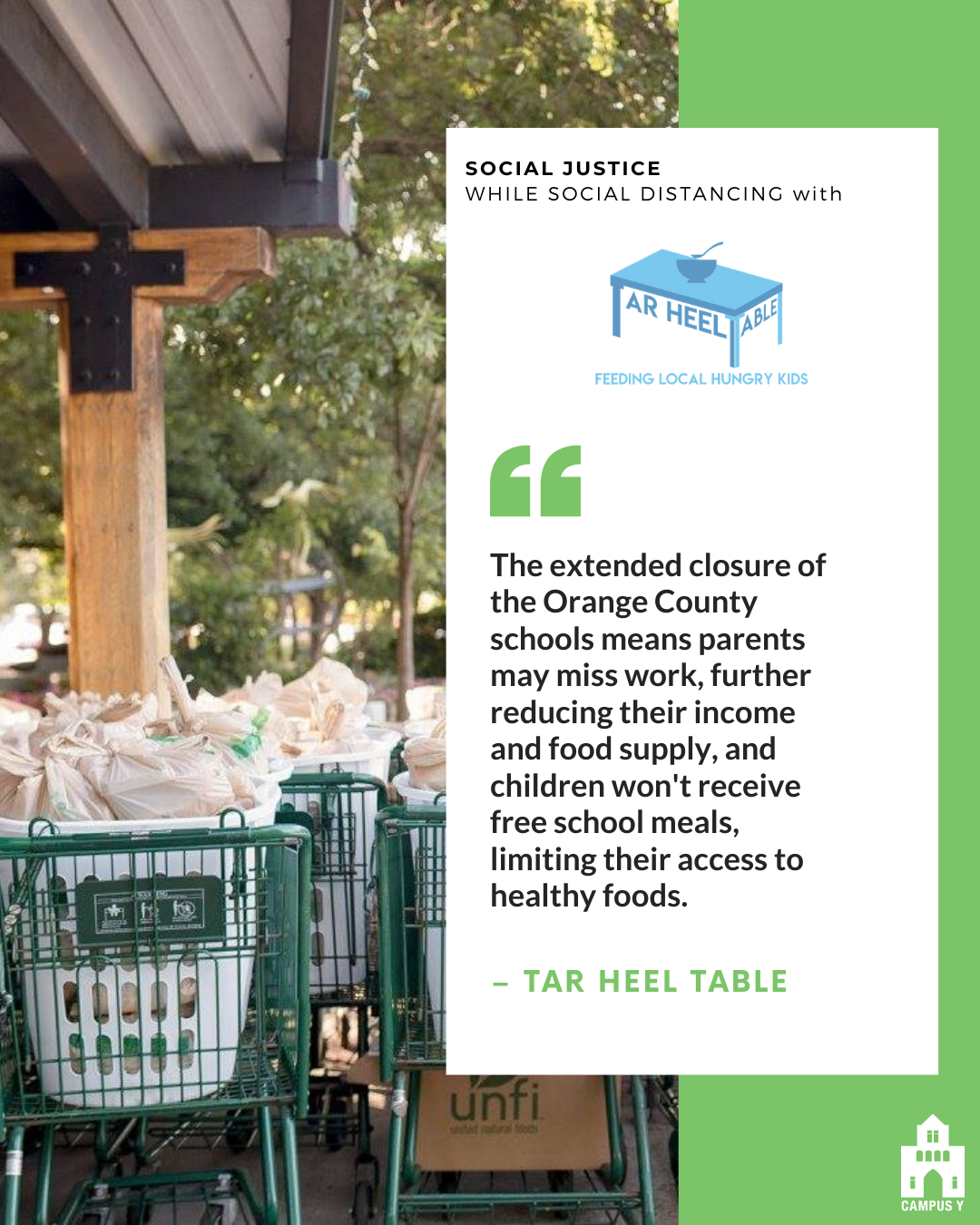
Tar Heel TABLE
“The extended closure of the Orange County schools means parents may miss work, further reducing their income and food supply, and children won’t receive free school meals, limiting their access to healthy foods.”
TABLE staff and volunteers are delivering a bag filled with healthy non-perishables and fresh food to the homes of as many of TABLE’s 727 kids as possible once per week.
You can help:
- Donate Food: You may easily order the food TABLE needs through our Amazon Wishlist and have it mailed to TABLE at 209 E. Main St., Carrboro, NC 27510
- Review our Most Needed Items List: Purchase from other online sellers like Target, Costco and have it mailed directly to our address at 209 E. Main St., Carrboro, NC 27510
- Contribute: Every gift of $60 provides 28 meals to our kids. Online: Venmo @TABLE-Inc or write a check and mail it to 209 E. Main St., Carrboro, NC 27510
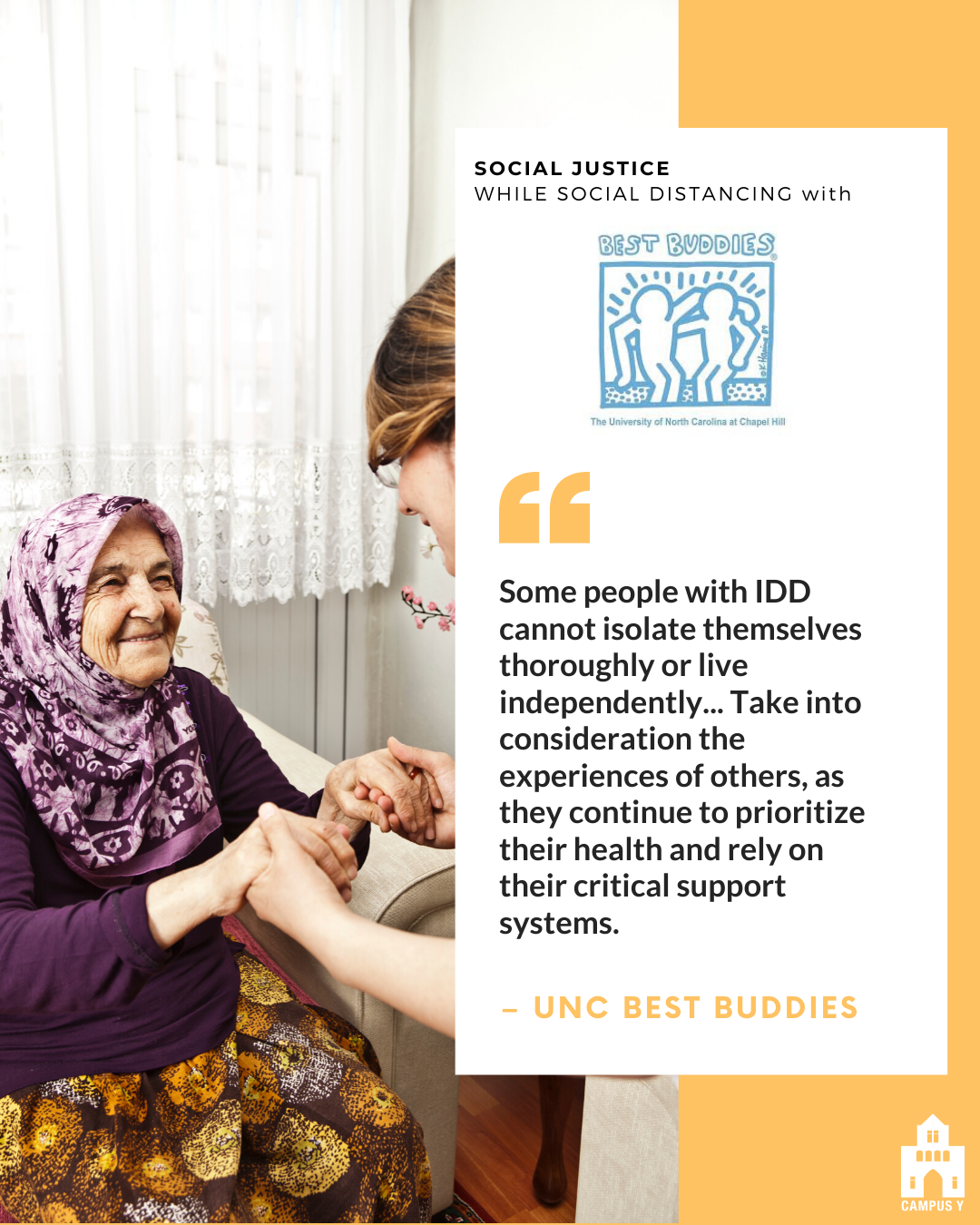
UNC BEST BUDDIES
“The media has ostracized and dismissed people with disabilities by reassuring us that COVID-19 is mainly scary for elderly people or those with chronic illnesses, but many people with IDD fall into the latter category. Additionally, some people with IDD cannot isolate themselves thoroughly or live independently, and transportation and cleaning may be added obstacles to their well-being and safety.
To continue advocacy and engagement with this community from afar, you can help by being aware of the added risks faced by this community. Take into consideration the experiences of others, as they continue to prioritize their health and rely on their critical support systems.”
More information:
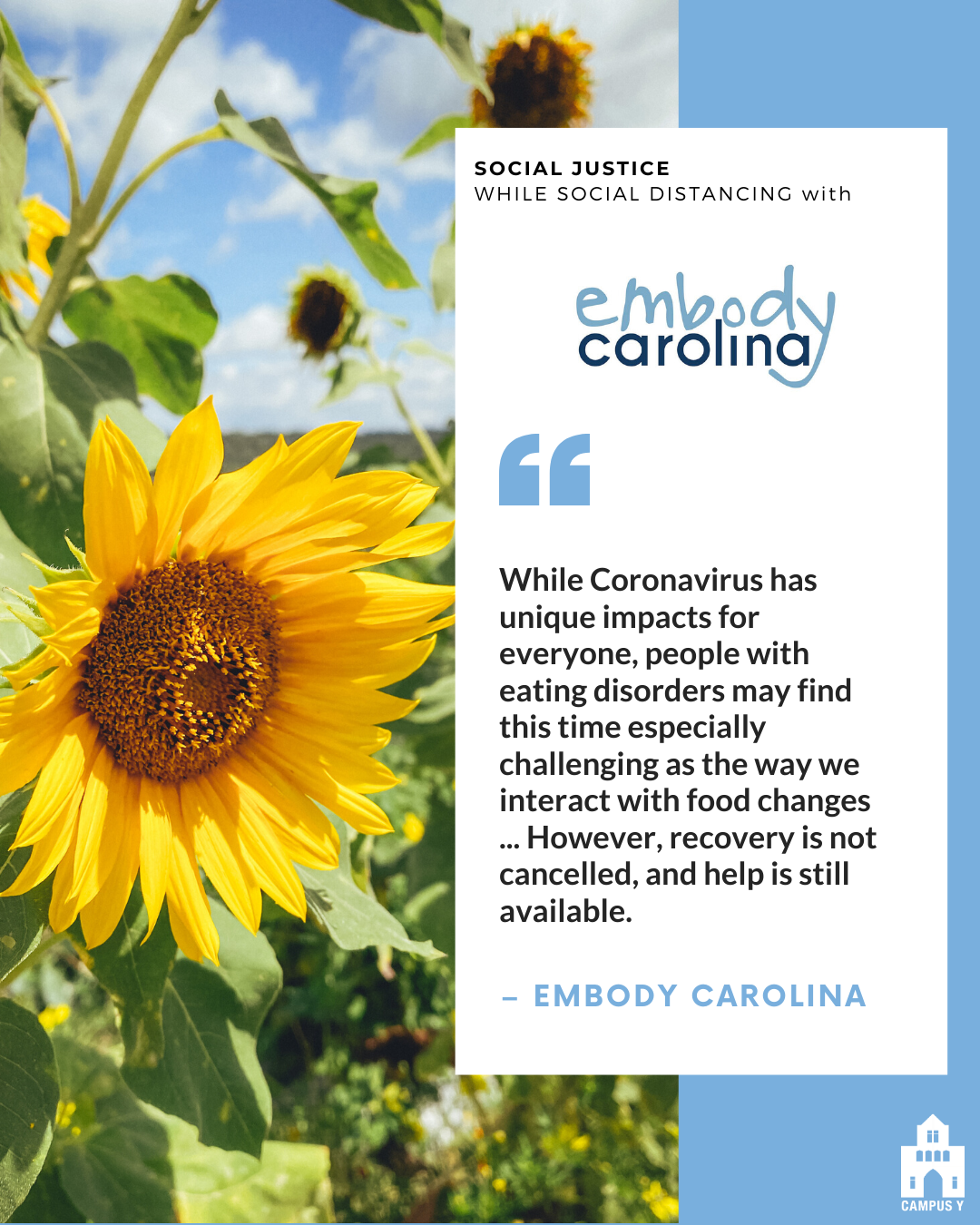
EMBODY CAROLINA
“While Coronavirus has unique impacts for everyone, people with eating disorders may find this time especially challenging as the way we interact with food changes. Notions of food scarcity, having to remain home, societal messages about gaining weight during this time, and lack of access to comprehensive support are just a few risk factors for higher eating disorder urges.
However, recovery is not cancelled, and help is still available. The National Eating Disorders Association has a hotline at (800) 931-2237 and the Alliance for Eating Disorders Awareness is holding bi-weekly virtual check-ins. And as always, Embody Carolina is here to provide whatever support we can.”
More information:
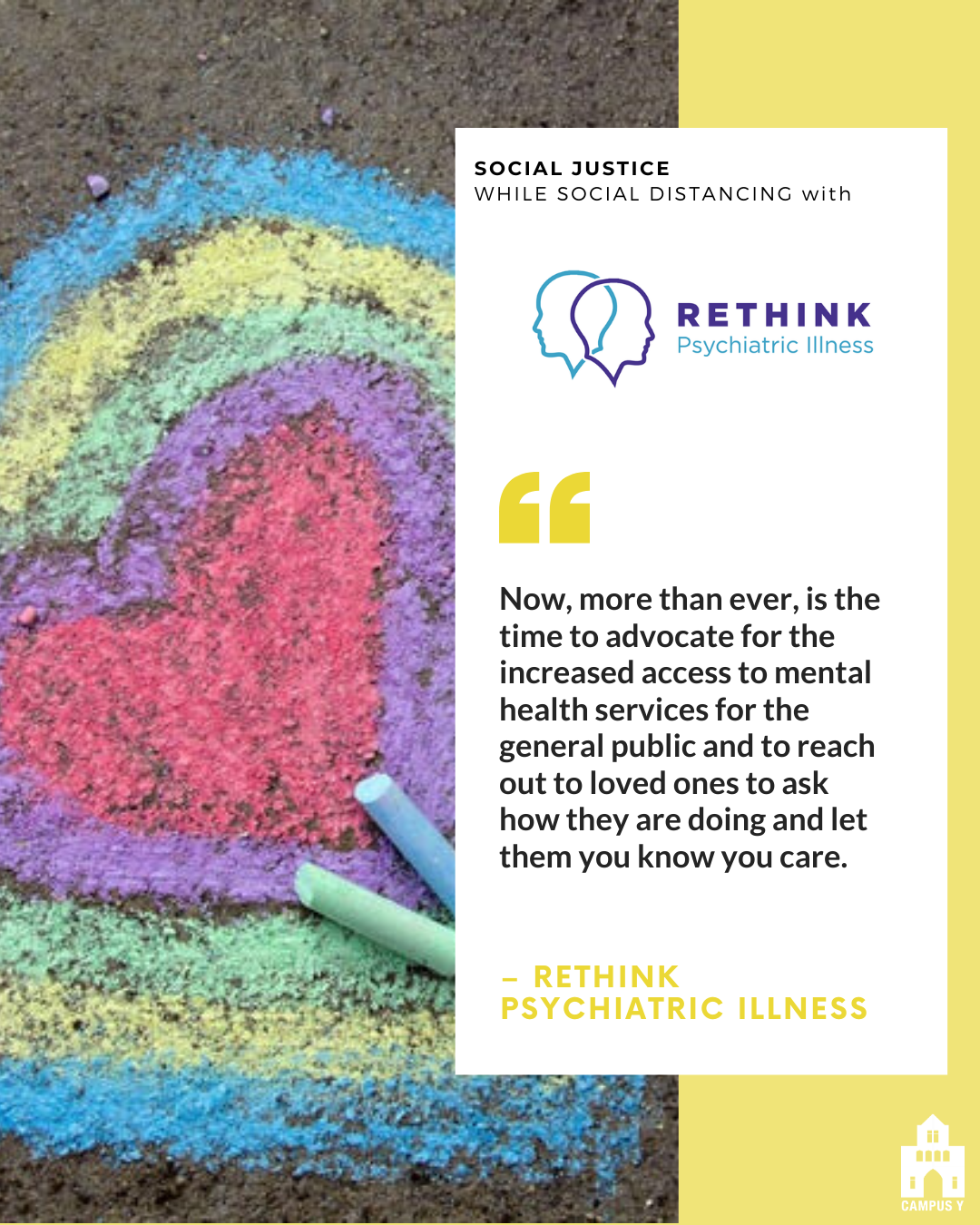
RETHINK: PSYCHIATRIC ILLNESS
“This pandemic is marked with uncertainty and fear and therefore, rates of anxiety and depression will likely rise over the next few months. Additionally, guidelines about social isolation and self-quarantine will likely exacerbate symptoms of depression, anxiety, and fear of contamination for those currently struggling with mental health issues.
Now, more than ever, is the time to advocate for the increased access to mental health services for the general public and to reach out to loved ones to ask how they are doing and let them you know you care.”
More information:
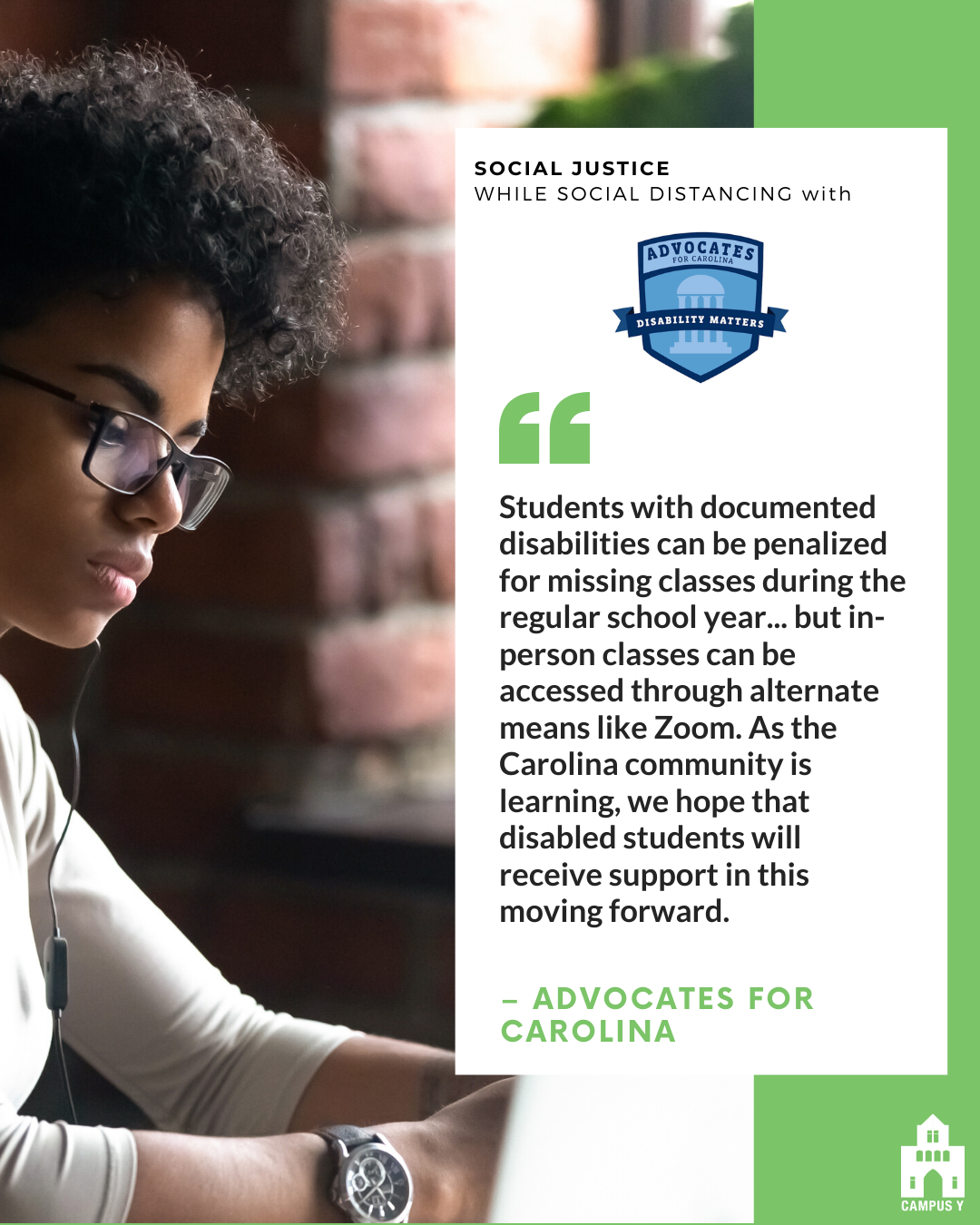
ADVOCATES FOR CAROLINA
“We appreciate the flexibility UNC teachers are showing during this time, and commend the empathy shown to students through leeway with due dates and attendance. However, we must acknowledge that not being able to attend class physically is a reality year-round for many disabled students. Students with documented disabilities can be penalized for missing classes during the regular school year because missed attendance, according to the ARS RAAP, “threatens the integrity of the course as offered,” though they do offer help in navigating this.
We would consider this time of total online classes with no in-person time to be evidence against this argument. In-person classes can be accessed through alternate, more accessible means like Zoom. As the Carolina Community is learning, we hope that disabled students will receive support in this moving forward.”
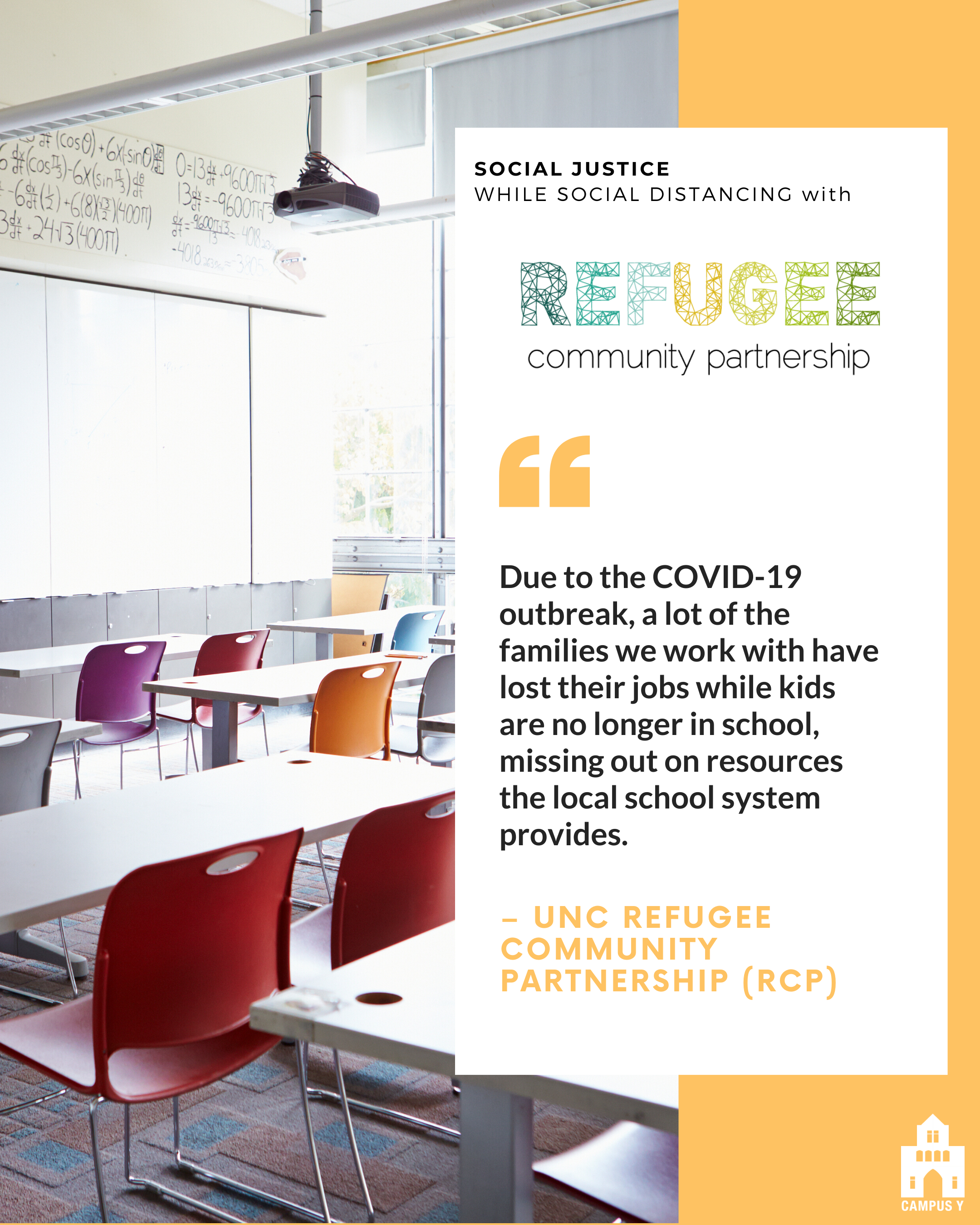
UNC REFUGEE COMMUNITY PARTNERSHIP
“Due to the COVID-19 outbreak, a lot of the families we work with have lost their jobs while kids are no longer in school, missing out on resources the local school system provides. Even though in-person meetings have halted, volunteers have helped with contactless food drop-offs, filling out unemployment forms with individuals, and are staying in touch with families through online platforms like WhatsApp or Facebook. RCP continues to report updated coronavirus-related information as needed to families directly in their native language through live videos and mass group messages.”
You can help:
